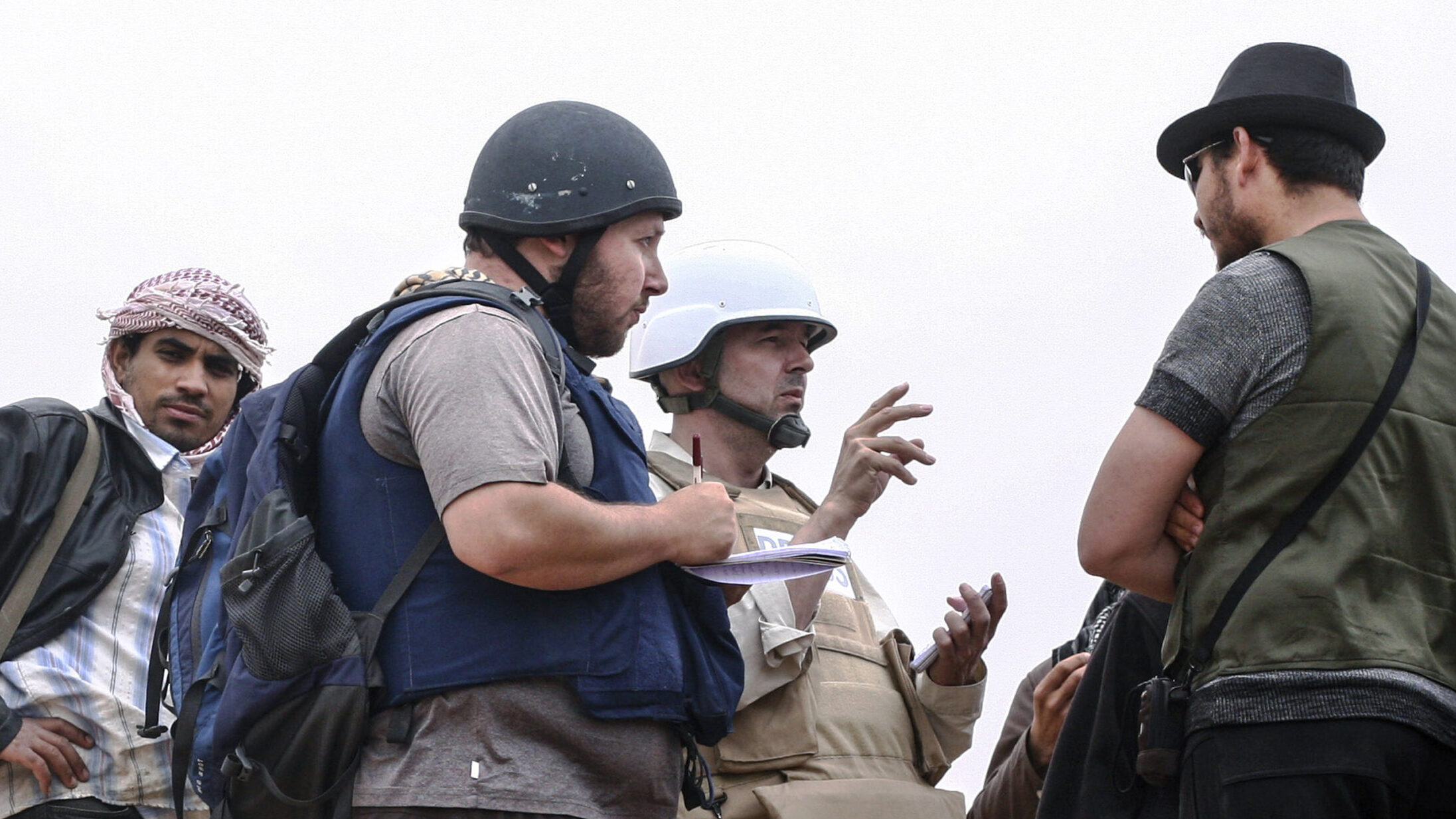Remembering Steven Sotloff’s Courage a Decade After His Execution
Steven Sotloff and James Foley’s legacies as courageous journalists endure 10 years after their executions by ISIS
On September 2, 2014, the world was horrified by the execution of American Israeli journalist Steven Sotloff by ISIS, a moment that underscored the global threat posed by extremist groups. His death followed the beheading of fellow American journalist James Foley and signaled ISIS’s brutal strategy of using hostages for political leverage. Ten years later, Sotloff’s bravery continues to serve as a stark reminder of the dangers faced by journalists in conflict zones and the lasting impact of his work.
Sotloff was educated at Kimball Union Academy and later at the University of Central Florida, where he majored in journalism. His passion for the Middle East began early and deepened after a Taglit-Birthright Israel trip, leading him to immigrate to Israel and become a dual American-Israeli citizen. He then embarked on a career as a courageous freelance journalist, driven by a deep desire to tell the stories of those living in conflict areas, inspired by his grandmother’s experiences during the Holocaust.
He was committed to being “the voice for the voiceless,” reporting from conflict zones in Syria, Egypt, Libya, Turkey, and Bahrain. His coverage included stories on al-Qaida, Bashar Assad, and the Syrian Civil War, among many others. Fluent in Hebrew, several Arabic dialects, and English, he often reported under pseudonyms to protect his identity as a Jewish journalist.
Throughout his career, Sotloff contributed to prestigious publications such as Time, The Jerusalem Post, The Christian Science Monitor, and The Media Line. His fearless reporting brought attention to underreported stories, including his groundbreaking work in Benghazi, where he revealed the absence of a protest before the attack—a discovery that earned him recognition for his diligence and resourcefulness.
Give the gift of hope
We practice what we preach:
accurate, fearless journalism. But we can't do it alone.
- On the ground in Gaza, Syria, Israel, Egypt, Pakistan, and more
- Our program trained more than 100 journalists
- Calling out fake news and reporting real facts
- On the ground in Gaza, Syria, Israel, Egypt, Pakistan, and more
- Our program trained more than 100 journalists
- Calling out fake news and reporting real facts
Join us.
Support The Media Line. Save democracy.
“It’s dangerous and getting worse by the day,” Sotloff wrote for The Media Line on July 30, 2013. “If no one is asking for articles, why should we risk it?” In one of his final assignments, he covered a Syrian-American medical conference in Gaziantep, Turkey, where American physicians trained Syrian doctors in trauma and limb-loss cases.
“Few knew agencies at that point understood what he was doing,” Felice Friedson, CEO of The Media Line, explained, noting the “crucial importance” of his work and that Sotfloff was writing for her agency exclusively during the last six months of his life. She describes him as “one of the most courageous, talented, and insightful journalists I have met.”
One of his last conversations was with Friedson on August 2, 2013, when he communicated with her from the Turkish border town of Kilis. Two days later, he was abducted near Aleppo, Syria.
Held captive for over a year, Sotloff endured torture and struggled to conceal his Jewish faith and dual US-Israeli citizenship, knowing these would increase his peril. Remarkably, he managed to observe Jewish traditions, even feigning illness to secretly fast on Yom Kippur in 2013.
Throughout his captivity, Sotloff smuggled letters to his family, who, along with US and Israeli officials, worked tirelessly to secure his release.
Since Sotloff’s execution, many others have suffered similar fates. His death, like those of so many others, highlighted the critical and often deadly role that journalists play in exposing truths in conflict zones. As the world remembers Sotloff’s sacrifice, his work inspires journalists who risk their lives to bring untold stories to light.
For a deeper understanding of Sotloff’s life and legacy, you can watch an ILTV News interview with Felice Friedson discussing his impact and the enduring importance of his work. (The interview begins at 17:29.)



